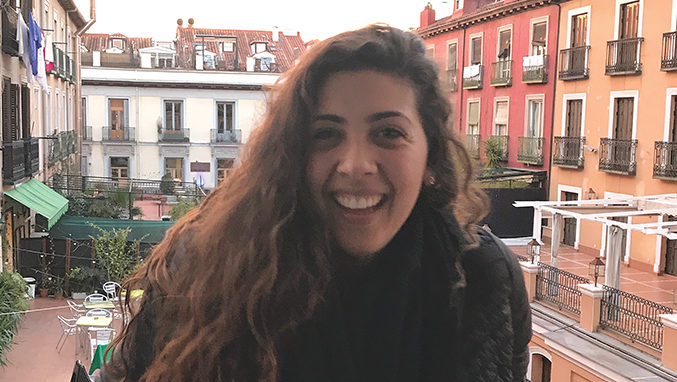
It was almost 2 p.m. Our therapist would be here any minute. I didn’t want any part of it. I pulled my younger brother to the side when I heard a knock on the door. “Don’t say anything,” I whispered to my brother. “We can’t talk to her or they’re going to make us move again.”
We sat at a table, silent. Our therapist pulled out my favorite board game, Guess Who. I bit my tongue. After several silent sessions, our therapist decided to stop coming. She couldn’t force us to talk so there was really no point in meeting with us. She was a sweet lady and I knew she meant no harm. But there was a fear that took over my body every time I saw her. Growing up in the system, I quickly learned that making one wrong move or saying the wrong set of words can change everything. I figured if I just kept quiet, nothing could go wrong.
I later learned that I denied myself help that could’ve made such a difference. There is an unspoken stigma around therapy. No one really helped me understand what therapy was and why it was beneficial. If I could speak to my younger self, I would tell her to talk to your therapist. Go ahead. Don’t be scared. Play your favorite game. I am now taking care of the younger Thalia that still remains within. I am peeling back the layers and, although painful, I am in touch with my inner child and am ready to heal.
I didn’t wake up one day with the idea of seeking a therapist. During the pandemic, I had a series of events unfold that truly brought me to my knees. I lost the most important person in my life, my grandma. She was the person who made me feel whole despite all else that was going on in my life. Her death was sudden. The last words I heard out of her mouth over the phone were “I don’t think I’m going to make it out of this, Thalia. I love you so much.” My world crumbled, shattered, and burned before my eyes. A few days after her passing, I felt like a kid again. All of my past traumas were sitting right next to me. My past flashed before my eyes. I realized I always hid behind my grandma. Now that she was gone, my guard was down.
Thankfully, there is currently a huge emphasis placed on the importance of mental health. The first thing that comes to mind when I think of mental health is therapy. I began reaching out to several non-profit organizations that supported me growing up. I was vulnerable and desperate. I wanted to feel better. I didn’t know what was wrong with me but I was ready to receive help. I found a therapist who was not only ready to help me through my grieving process but was also ready to talk about my childhood trauma. It isn’t easy but talking about my trauma to a therapist is necessary for my healing process. Everything I do today, even the smallest acts, can be tied back to childhood events. It blows my mind every time. During each of my therapy sessions, I have at least three “aha” moments.
One thing that has stuck with me during my healing journey is the importance of ending generational trauma. Why was this the first time that I heard about this concept? I continue to learn about my triggers, what I need, and who I am. Sometimes it can feel like there is no way out of what you’re feeling. But I promise there is a way to get through it. I must admit, there is no magical wand that therapists wave to vanish away your problems. There is no phrase that they can say that will completely diminish the pain. You have to put in the work and, let me tell you, it is worth it. Therapy is not a “one-and-done” journey but a lifelong journey you take on to heal and find your true self. Despite the stigma around receiving help that you might have learned growing up, know there is help out there. The sooner you start, the better. Even if you feel nervous about sessions — “What will we even talk about?,” “I don’t want to have to explain my whole life to someone,” “What if they don’t get me?” — know that there are many resources out there for you. There are surprisingly lots of different types of therapy, so you can explore the options and choose the one that works best for you.
Growing up in the foster care system has left us with no choice but to be independent. But from one foster youth to another, it’s time for some of that weight to be taken off of our shoulders. Let someone else help with the load. Stuffing things down can sometimes be more painful and can resurface at the most inconvenient times. It’s time to heal from the pain holding us back from reaching our full potential.





